Federal Republic of Germany
History
The Federal Republic of Germany, also known as Germany, is a country in Central Europe. It is the most populous member state of the European Union. Germany is situated between the Baltic and North seas to the north, and the Alps to the south; it covers an area of 357,022 square kilometres and shares borders with nine countries.
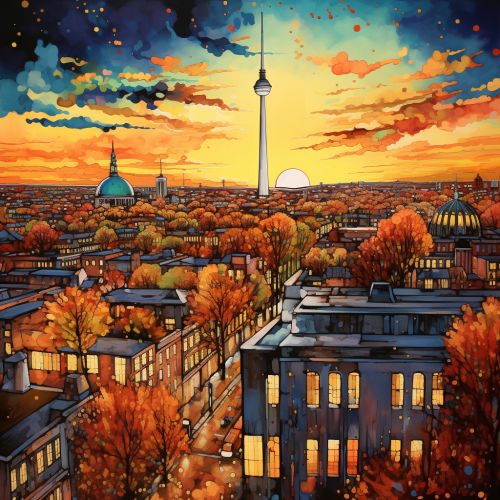
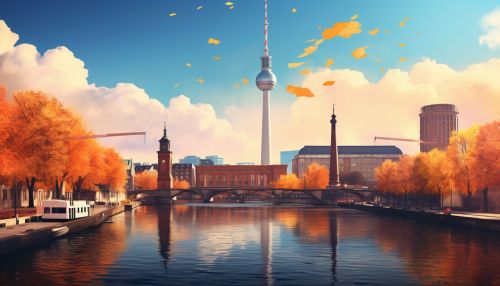
The history of Germany is complex and multifaceted, extending back to the Early Middle Ages. In fact, the roots of German history and culture date back to the Germanic tribes, which were first documented by the Romans in 100 BC.
Early History
The early history of Germany begins with the migration of the Germanic tribes in northern Europe during the Late Bronze Age. The Germanic tribes, such as the Goths, Vandals, Saxons, and Franks, played a major role in the collapse of the Western Roman Empire and the establishment of the Medieval period.
Holy Roman Empire
In the 10th century, East Francia, a region of the Frankish Empire, evolved into the Holy Roman Empire, a multi-ethnic complex of territories in Western and Central Europe. This empire, under the control of the German king Otto I, was characterized by feudalism and marked by the division of power among the king and the princes, dukes, bishops, and knights.
German Confederation and Empire
The 19th century saw significant changes in the political structure of Germany. The Napoleonic Wars led to the dissolution of the Holy Roman Empire and the creation of the German Confederation. The Confederation was a loose association of 39 German states, which provided the framework for the eventual unification of Germany under the Prussian King Wilhelm I in 1871.
Weimar Republic and Third Reich
The defeat of Germany in World War I led to the abdication of Kaiser Wilhelm II and the end of the German Empire. The subsequent period, known as the Weimar Republic, was marked by political instability, economic volatility, and social change. In 1933, the Nazi Party, led by Adolf Hitler, seized power and established the Third Reich, a totalitarian regime that initiated World War II.
Post-War Germany and Reunification
After the defeat of Nazi Germany in World War II, the country was divided into four occupation zones by the Allied powers. The Federal Republic of Germany (West Germany) and the German Democratic Republic (East Germany) were established in 1949. The Berlin Wall, built in 1961, physically and symbolically divided the country until its fall in 1989. The reunification of East and West Germany was formally completed on October 3, 1990.
Geography
Germany is located in Central Europe, bordering nine countries: Denmark to the north, Poland and the Czech Republic to the east, Austria and Switzerland to the south, France to the southwest, and Belgium, Luxembourg, and the Netherlands to the west.
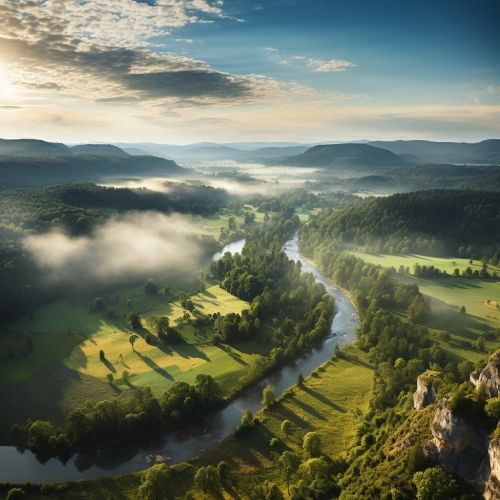
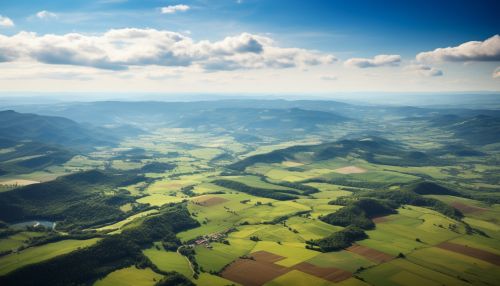
The country's topography varies significantly from north to south. The North German Plain features flat, low-lying terrain dotted with marshes, heathland, and forests. The Central German Uplands include the Harz Mountains and the Thuringian Forest. The Southern German Highlands feature the Black Forest and the Swabian Jura. The Bavarian Alps, with the country's highest peak, Zugspitze, are located in the south.
Germany has a temperate seasonal climate, with moderate to heavy rainfall throughout the year. The country's climate is influenced by the Atlantic Drift, the northern extension of the Gulf Stream.
Politics
Germany is a federal parliamentary republic. The political system is laid out in the 1949 constitution, known as the Basic Law, which remained in effect with minor amendments after 1990's German reunification.
The Federal Diet, is Germany's federal parliament. It is elected every four years in a system that combines direct and proportional representation. The Bundestag in turn elects the Federal Chancellor, the head of government, currently Angela Merkel.
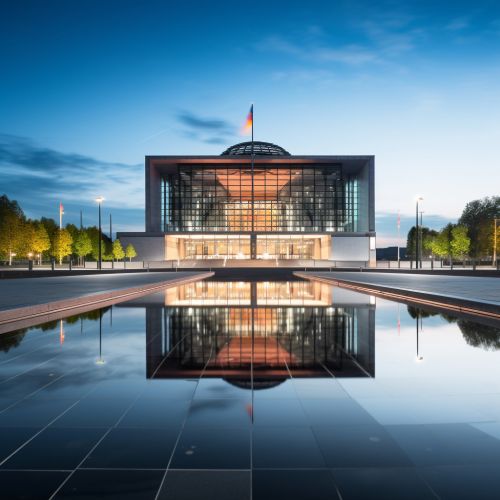
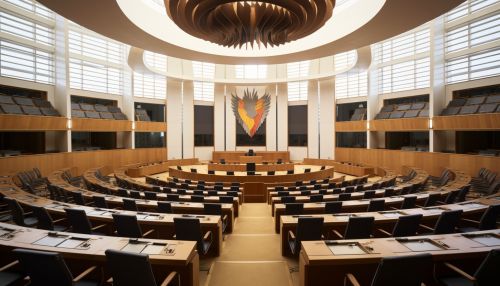
The President of Germany, currently Frank-Walter Steinmeier, is the head of state and invested primarily with representative responsibilities and powers. He is elected every five years by the Federal Convention, an institution consisting of Bundestag members and an equal number of state delegates.
Germany's judiciary is independent of the executive and the legislature. The German legal system is a civil law mostly based on a comprehensive compendium of statutes, as compared to the common law systems.
Economy
Germany has a social market economy with a highly skilled labour force, a large capital stock, a low level of corruption, and a high level of innovation. It is the world's third-largest exporter of goods, and has the largest national economy in Europe which is also the world's fourth-largest by nominal GDP.
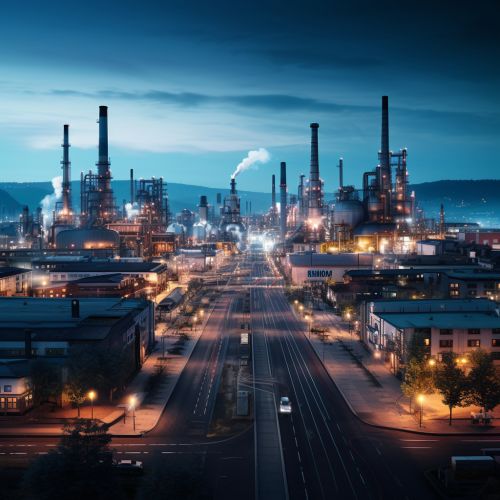
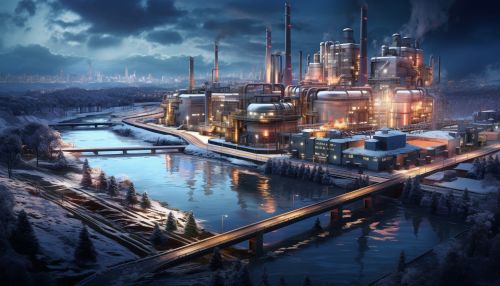
Key sectors of the German economy include manufacturing, services, and agriculture. Germany is famous for its automotive industry, with globally renowned manufacturers such as BMW, Mercedes-Benz, Audi, and Volkswagen. Other key industries include machinery, chemicals, electronics, pharmaceuticals, and renewable energy.
Germany is a leading country in the development of renewable energy and sustainability, with a commitment to the "Energiewende" policy that aims to transition away from fossil fuels towards renewable energy sources.
Culture
German culture has been shaped by major intellectual and popular currents in Europe. Germany is often known as the country of poets and thinkers, with numerous renowned philosophers, artists, and scientists, including Martin Luther, Ludwig van Beethoven, Immanuel Kant, Johann Wolfgang von Goethe, and Albert Einstein, hailing from Germany.
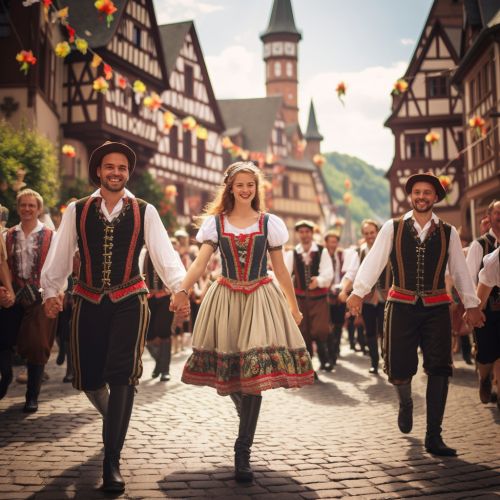
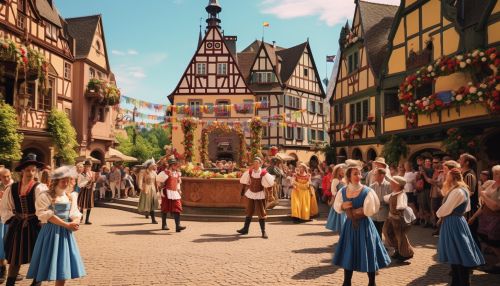
Germany is famous for its beer, with approximately 1,300 breweries in the country. The annual Oktoberfest beer festival in Munich attracts millions of visitors from around the world. Germany is also known for its bread, with around 1,000 different types of bread, rolls, and pastries baked in the country.
